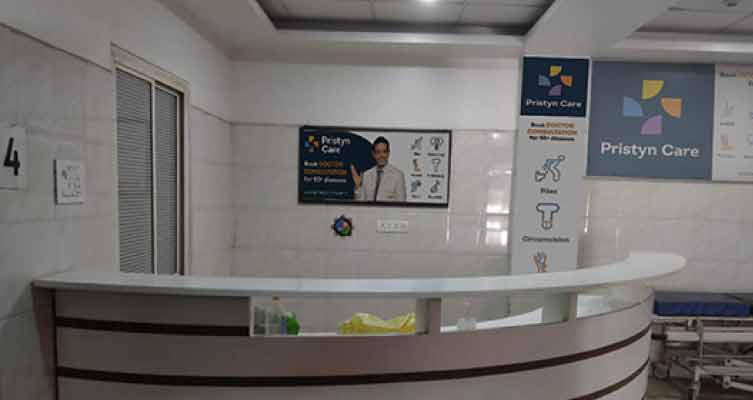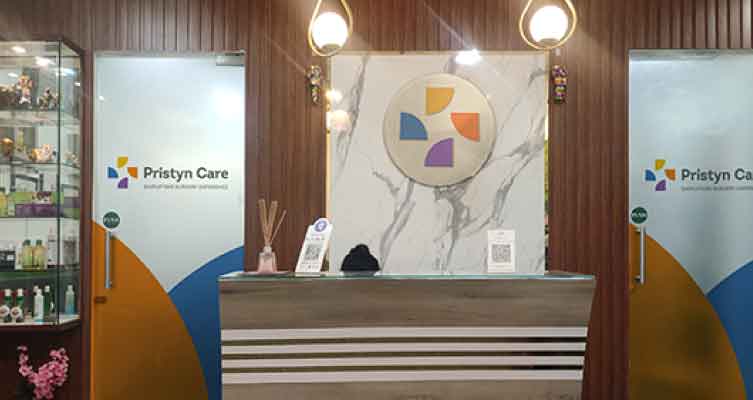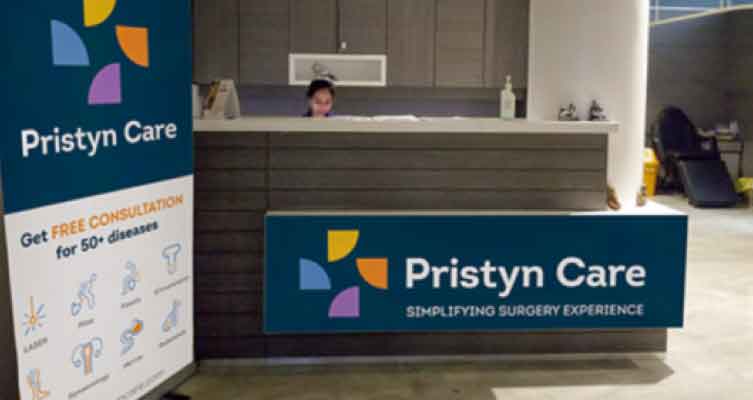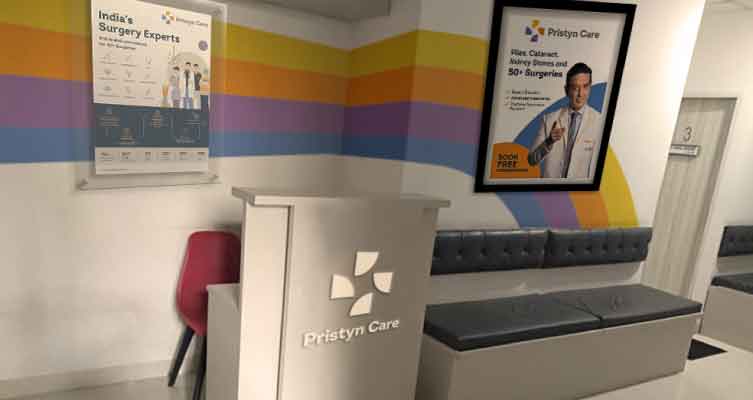
Pune
Confidential Consultation
Top Fertility Specialists
Free Doctor Appointment
Best Fertility Treatments




Infertility is defined as the inability of a woman to get pregnant even after having frequent intercourses for at least a year. Most couple indulge in unprotected sex 2-3 times a week to be able to conceive. But, when pregnancy does not occur even after one year, and after diagnosis, the woman is confirmed to have a certain problem, she should get treated or seek medical help. It is important to note that female infertility is not always the reason for the woman not getting pregnant; infertility can be a result from problems in the man, the woman, or both the partners. A woman should not be considered infertile without proper medical diagnosis. To understand if a woman is infertile or not, proper diagnosis is of utmost importance.
Infertility is a common phenomenon and it is increasing with the changing lifestyle and habits . According to a report by the Indian Society of Assisted Reproduction, 10-14% of the Indian population suffers from infertility. According to some estimates, this amounts to roughly one in every six couples in urban India.


Treatment of Female Infertility
The treatment of female infertility depends on the cause of the problem. With advancements in the medical field in recent times, couples today can resort to any of the following methods to conceive a baby. It can also involve medication, surgery, non-surgery, and reproductive assistance such as ART.
– Zygote intrafallopian transfer (ZIFT) or Tubal Embryo Transfer where the fertilization takes place in a laboratory. Later, the fertilized embryo is transferred into the uterus.
– Gamete intrafallopian transfer (GIFT) – This treatment involves transferring the eggs and sperm into the fallopian tube and allowing the fertilization to take place inside the woman’s body.
Delivering Seamless Surgical Experience in India
Your safety is taken care of by thermal screening, social distancing, sanitized clinics and hospital rooms, sterilized surgical equipment and mandatory PPE kits during surgery.
A dedicated Care Coordinator assists you throughout the surgery journey from insurance paperwork, to free commute from home to hospital & back and admission-discharge process at the hospital.
Our surgeons spend a lot of time with you to diagnose your condition. You are assisted in all pre-surgery medical diagnostics. We offer advanced laser and laparoscopic surgical treatment. Our procedures are USFDA approved.
We offer free follow-up consultations and instructions including dietary tips as well as exercises to every patient to ensure they have a smooth recovery to their daily routines.
Infertility can be treated with medicine, surgery, artificial insemination, or assisted reproductive technology. Many times these treatments are combined. In most cases infertility is treated with drugs or surgery.
It is a sign of reproductive problems. Common problems with a woman’s reproductive organs, like uterine fibroids, endometriosis, and pelvic inflammatory disease (PID) can worsen with age and also affect fertility. These conditions might cause the fallopian tubes to be blocked, so the egg can’t travel through the tubes into the uterus.
No, infertility cannot be checked and confirmed at home. To confirm, a woman needs to undergo prescribed blood tests, X-ray, ultrasound scan, and also chlamydia test at times.
An infertility specialist for females must include one/ more of the following qualifications:
Both OBGYNs and reproductive endocrinologists treat female infertility. However, both specialize in slightly different areas. While an OBGYN treats overall issues related to female infertility, a reproductive endocrine specialist treats infertility problems specifically related to hormonal imbalances.
Which of the two is better for you, depends directly on the root of your infertility issue. We suggest you first consult an OB-GYN and let your doctor guide you to the best possible approach
Female infertility results from multiple factors such as genetic, environmental, and psychological to more specific and physical obstructions in the uterus, ovaries, or the fallopian tubes of the reproductive system.
Depending on the nature and diagnoses of the specific infertility factor, the treatment may vary from three months to one year.
You should consult an infertility specialist if you have been wanting to conceive for more than a year but have failed despite regular and unprotected sex.
While you can continue to try natural methods for as long as you want, getting medical help without delay would help you understand the root cause of infertility and provide an effective and immediate solution. Also, since age is an important factor in reproduction, especially for females, it is important that you take an early decision. Some prominent markers that you should consider artificial reproductive methods is when:
Yes, age is an important factor for reproduction. As a woman ages, the number and quality of her egg reduces over time. Therefore, if you are a woman in your 30’s or 40’s and struggling with infertility for more than one year, it is best you consult an OB-GYN at the earliest.
No. Absolutely not. Infertility affects both men and females equally. Data records that out of all the cases of infertility,
No. While many people have a belief around this, it is a pure myth. Masturbation has no direct or indirect association with infertility.
Yes. PCOS is a syndrome that results from hormonal imbalance. And since ovulation is directly linked with hormones, PCOS does affect a woman’s fertility. However, it can be finely managed with strict lifestyle changes and medical assistance at the right time.
Yes. Data records, women with diabetes are more likely to experience irregular periods and premature ovarian failure. For the same reason, the fertility capacity declines. However, it can be finely managed with proper care and medical assistance at the right time
Yes, an inguinal or incisional hernia can cause tubal damage and bilateral tubal occlusion in females. Thus, leading to primary infertility. Therefore, if you fear hernia, it is best you consult your doctor at the earliest and seek primary treatment.
Yes, smoking reduces the chances of fertility in both males and females. Data records that women who smoke find it difficult to conceive as effortlessly as women who don’t smoke. Therefore, if you are planning pregnancy, we suggest you limit or quit it as soon as possible.
Yes, when diagnosed and treated at the early stages, female infertility due to hormonal imbalances, irregular periods, cysts, fibroids or structural issues are very much treatable. However, if the issues persist, assisted reproductive technologies such as IUI/ IVF may be employed.
Yes, with advancing technologies and increasing awareness, babies born through ART methods such as IUI or IVF are just as healthy as any other child born through natural conception methods. However, like any other assisted technology, the treatment requires you to carefully follow all the suggested instructions and remain patient and positive throughout the treatment.
Female infertility contributes to almost two third of fertility cases in India. The key is to understand the common causes of female infertility and know how to identify them. In women over 35 years, age is the most prevalent cause for female infertility. But in recent times, PCOS has emerged to be another common reason for female infertility. Women suffering from these factors often face difficulty in conceiving. They need to seek medical help to find out the underlying cause and get treated in time.
Pristyn Care in Pune is a pioneering and reliable clinic which has over the years accomplished a successful journey of helping many couples achieve pregnancy. At Pristyn Care, Pune clinic, you can get in touch with some of the best doctors who can help you embark on this beautiful journey of motherhood and parenting with the safest and the most suitable treatment that best suits your health condition.
1. What is the main reason for my infertility?
2. Is the problem only with me or also with my partner?
3. Can my fertility be treated with medicines?
4. Are there any lifestyle modifications that might help me get pregnant?
5. If the infertility cause is unclear, which line of treatment do you recommend?
6. What are my chances of pregnancy with these treatment methods?
7. What is the guarantee that I will conceive with this treatment?
8. How does IUI/ IVF work?
9. Can IUI/ IVF lead to multiple babies?
10. What are our treatment options, and how much do they cost?
11. What are my payment options?
Tanvi Biswas
Recommends
Choosing Pristyn Care for my female infertility treatment was a life-changing decision. The medical team was highly knowledgeable and made me feel comfortable discussing my concerns. Pristyn Care conducted advanced fertility tests and designed a comprehensive treatment approach. Thanks to their expertise and consistent support, I am now pregnant with twins. Pristyn Care's commitment to my well-being and success in overcoming infertility has been remarkable. I wholeheartedly recommend Pristyn Care to any woman seeking effective and personalized female infertility treatment.
.svg)
.svg)